In the News | Older
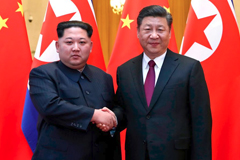 |
In the NewsJune 20, 2018Kim Jong Un ends visit to China with a message for the USZachary CohenCNN“The Economist may have said ‘Kim Jong Won,’ ” Narang said, referring to a pun on the magazine’s cover about the summit, “but it really should've been Xi Jinping winning.” |
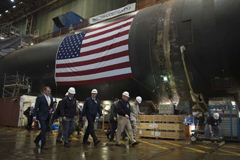 |
In the NewsJune 16, 2018Some experts question defense value of submarinesDan FreedmanThe HourThe Columbia-class is the updated classic ballistic-missile submarine, and, according to Owen Cote, “the single most important part of the nuclear triad. It’s the only weapons platform that can survive attack and destroy any target. The only bad thing about it is it’s expensive.” |
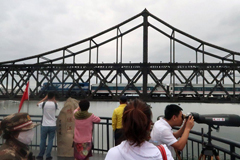 |
In the NewsJune 16, 2018How China is using North Korea in its long game against AmericaShi JiangtaoSouth China Morning PostDespite Pyongyang’s record of using diplomacy to manipulate major powers, analysts say Beijing may have few good options other than to throw its weight behind another round of denuclearisation talks to maintain ties with its communist neighbour and secure its regional influence. |
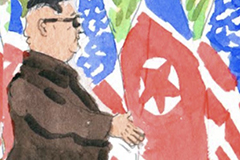 |
In the NewsJune 14, 2018Two guys walk into a summit in SingaporeChris LydonRadio Open SourceFrom “fire and fury” to a “terrific relationship” in less than a year sound like a happy turn in the Trump-Kim dance around nukes and North Korea. Or is it? Chris Lydon interviews Jeanne Guillemin and other scholars for historical context. |
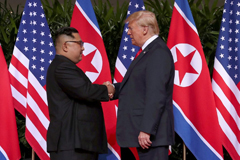 |
In the NewsJune 13, 2018CIS experts in national security and the Koreas discuss the Singapore summitThe Center's experts have been mentioned in media outlets around the globe, weighing in on the expectations and possible outcomes of the historic meeting of President Donald Trump and North Korean leader Kim Jong Un. |
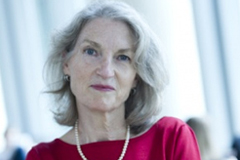 |
In the NewsJune 12, 2018Gender gap without gender bias?Colleen FlahertyInside Higher EdKathleen Thelen's research inspires political science publishers to take a closer at publication gender bias. Study says editors of major political science journals demonstrate no systematic bias against female authors. Yet women authors remain underrepresented in the field. Why? |
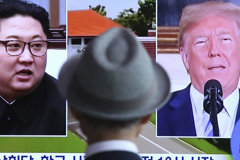 |
In the NewsJune 11, 2018Singapore summit previewMeghna Chakrabarti and Jamie BolognaWBURIt may take years to determine the success of the summit, but experts discuss what to watch for and what they expect to see out of the historic meeting. |
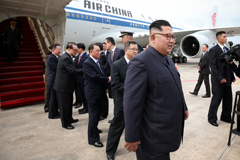 |
In the NewsJune 11, 2018What to expect from President Trump’s first meeting with Kim Jong UnLarry MantleAirTalkIt will be the first time a North Korean leader has met with a sitting US president, despite decades of tense relations. Experts in national security and the Koreas discuss expectations ahead of tonight’s summit. |
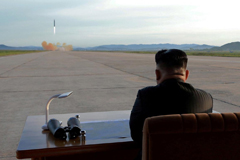 |
In the NewsJune 11, 2018Who has Kim Jong Un's 'nuclear button' in Pyongyang while he's away?Josh SmithReuters“Its command and control structure while Kim is traveling is unlikely to be robust enough for him to be able to reliably issue or stop launch sequences,” says Vipin Narang. He said that was because North Korea was likely to have configured its nuclear forces to permit rapid authorization to launch in order to offset the risk of a first strike from the United States. |
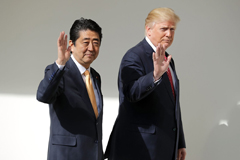 |
In the NewsJune 8, 2018Despite good faith on Singapore meeting, discord remains between US, JapanXinhuaCIS Director Richard Samuels said: “He (Trump) has given every reason for Tokyo to fear that Washington will compromise their security by cutting a deal that doesn't include short range missiles and that effectively acknowledges the DPRK as a nuclear weapons state. Abe has few cards to play to forestall that.” |
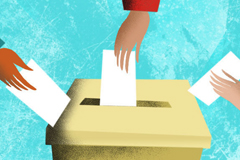 |
In the NewsJune 7, 2018Why certain types of elections favor extreme candidatesKellogInsightThe study, based on the research of Fotini Christia and several other social scientists, cannot say whether district or at-large elections are better, but it is clear that voting systems can influence who ends up in power. |
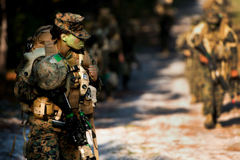 |
In the NewsJune 4, 2018Students spearhead “women working in security” conferenceRyan Evans, Usha Sahay, Sara Plana, Rachel Tecott, Alex Bick, Alice Friend, and Kathleen HicksWar on the RocksPhD candidates Sara Plana and Rachel Tecott spearheaded a major conference that was sponsored and hosted by CSIS and the Kissinger Center at SAIS. The topic, the future of force, aims to be the first in a program series called the Future of Strategy Forum that features women doing important work in national and international security. |
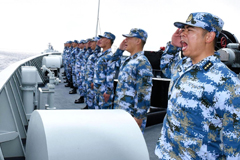 |
In the NewsJune 1, 2018As Trump talks trade and nukes, China quietly tightens its grip on the South China SeaClay DillowCNBC“The US is trying to stop China from doing something it’s already doing,” said Taylor Fravel, associate professor of political science and the Center’s acting director. “That’s harder than stopping it from doing something it hasn’t done yet.” |
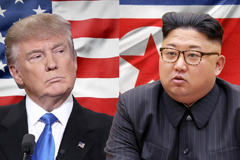 |
In the NewsMay 31, 2018What a Trump-Kim deal may look like, from good to bad to worseDavid Tweed, Toluse Olorunnipa, and Justin Sink Bloomberg News“It is costless for Kim to say I am not going to do nuclear or missiles tests for now because frankly they are a stage in their cycle where they don’t need to,” said Vipin Narang. |
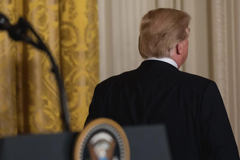 |
In the NewsMay 30, 2018Vipin Narang in the newsNuclear strategy expert Vipin Narang spoke with several media outlets about President Trump's withdrawl from the Iran Deal and the implications it has on North Korea, speculating about the expectations both leaders have for the upcoming June 12th summit in Singapore between Kim and Trump. |
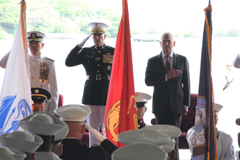 |
In the NewsMay 30, 2018US military renames largest area of operationsWilliam GalloVOATaylor Fravel, associate professor of political science and the Center’s acting director, says the name change to “Indo-Pacific Command” from “Pacific Command” is also likely intended to signal support for the US administration’s “Free and Open Indo-Pacific Strategy.” |
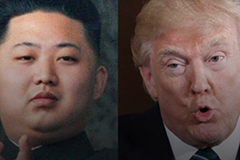 |
In the NewsMay 28, 2018US-North Korea summit like Trump’s “reality tv-show finale”: Vipin NarangBy Eleanor HallThe World TodayThe recent meeting of the two Korean leaders has boosted the prospects that the June 12 summit will go ahead. Vipin Narang featured on The World Today. |
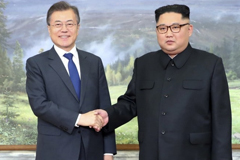 |
In the NewsMay 27, 2018US officials meet with North Koreans despite uncertainty surrounding Trump-Kim summitAnna Fifield and Joby WarrickThe Washington Post“This is a great step,” said Vipin Narang, noting that the summit preparation was best handled by experts behind the scenes rather than in public forums such as Twitter. “This is how progress is made, and the best chance to have a summit, and one that yields meaningful outcomes,” Narang said. |
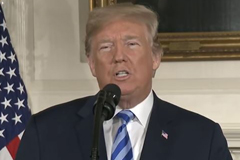 |
In the NewsMay 18, 2018Jim Walsh on Iran and North KoreaJim Walsh, SSP senior research associate and foreign policy expert corrects Fox News host claiming the Iran deal must be bad because Iran wants to stay in “By that definition, no deal would ever be good if the parties supported it. That's not how negotiations work.” Walsh also appeared on various media outlets to give his perspective on the latest with North Korea and President Trump. |
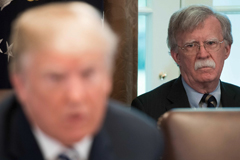 |
In the NewsMay 17, 2018Trump faces North Korea dilemma after Bolton infuriates PyongyangJulian Borger The Guardian“The North Koreans were prepared to ignore a lot of what the administration said before the summit, but it was the victory lap before the race that has really set them off,” Vipin Narang said. |


